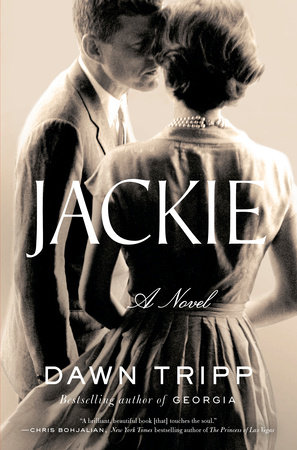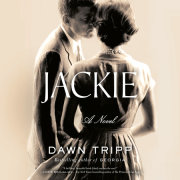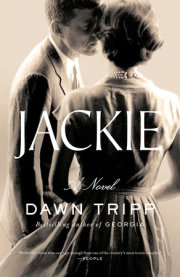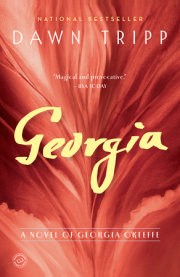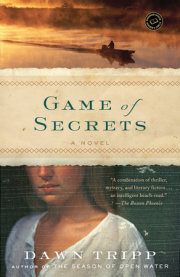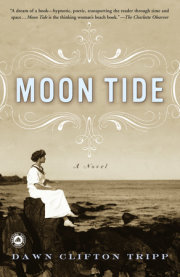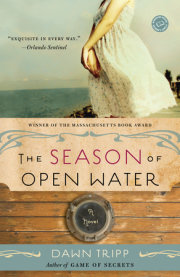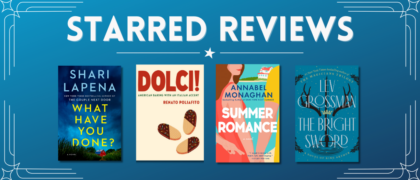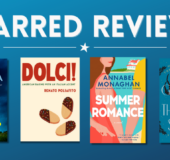Growing up, I never had flying dreams or dreams of being onstage. I wanted to ride horses on an empty coast. I wanted to be Sappho, or invisible, or the circus queen who ran off with the daring young man on the flying trapeze. I loved art, ballet, horses, and dogs. I had skinned knees and braces on my teeth, but there were writers like Chekhov and Shaw on a shelf in the room where I had to take naps. I never slept but sat on the windowsill reading. My heroes were Mowgli and Scarlett O’Hara. Later, there were poets—Virgil, Tennyson, Edna St. Vincent Millay. I loved to dance but didn’t care for dancing school. By the time I was twelve, I was taller than most of the boys. Clumsy and dull, they could never keep rhythm, too fast on the waltz, too slow on the foxtrot. I kept my back straight, eyes over their heads, keeping time with the circling walls. And as those rooms spun, I dreamed of France. I wanted to grow up to write stories in a garret apartment in Paris; I wanted to smoke rolled cigarettes, date artists and aristocrats, drink grasshoppers, and dance in clubs on the West Bank until midnight. I wanted to walk home alone by the Seine and be no one. That was the future I’d marked off for myself. I could see it, almost breathe it. That was the edge of life I was standing on when I was twenty-one, the night I met you at the Bartletts’. You were not part of that future. But that night there was something in you that I recognized—something hurtling, disparate—the ranging curiosity, incisive intellect. You were good-looking, of course. Your golden swagger could bend a room. I eschewed that. It smacked of arrogance. That night, though, there was something else in you I saw: something deeper, more fugitive and fragile, a kind of curious hunger to break on the world like a star. You were not my kind of adventure. Too American. Too good-looking. Too boy. Too much about politics and new money. Your life, I told myself, was not the life I was looking for.* * *
Spring 1951 “He’s a kind of cheerful lightning,” Charley Bartlett tells me.
“I’ve already met your congressman,” I say. “On a train when I was still at Vassar.”
“And?”
“He was a flirt. We rode the same train for a while. I was the only girl in the car. I was reading and I wasn’t going to waste an hour I wouldn’t get back for a man like that.”
“Like what?”
“The kind who loves a game and will leave it once he’s won.”
Now I’ve been rude. Silence on the line. Then Charley says, “Jack’s better than that.”
“No, Charley,” I say. “You’re better than that.”
Charley Bartlett. Smart, kind, a wonderful writer. He was what my stepbrother Yusha called “an intellectual beau.” Charley tried to introduce me to Jack Kennedy at a wedding the summer before. A ritzy night on Long Island, lanterns strung through the trees. I was talking with a prizefighter when Charley came over and led me by the arm through the giant crowd to where he thought Kennedy was, only to discover he’d left on the heels of some girl.
“Aiming for the Senate,” Charley says to me now on the phone. “He’ll need a wife, and he’s not the buttoned-up boy next door.”
“I’m looking at a job in New York,” I say.
“You should still meet him.”
I don’t answer right away. It all feels a little dull and preordained—that life the young Georgetown set moves in, like fish lazing from one circle to the next.
Still, a week later, a Sunday in May, I drive from my mother’s house down Chain Bridge Road, toward Georgetown. A warm evening, the cherry blossoms have gone by, the leaves already darkening to their summer green. There are narrow tree-lined streets, three shallow stone steps, the brass knocker, and my hand on it, then Charley is crossing the living room to greet me, his wife, Martha, emerging from the kitchen, with a tall glass of what looks like some rum thing. Five months pregnant, radiant, red hair piled on top of her head, she hands Charley the drink, takes my arm, and leads me past the Sheraton armchairs and framed prints onto the terrace, where the others mingle. All people I know, or know of. Pat Roche, whom I competed against at horse shows; her husband, Jeff, who has some connection to Palm Beach; Hickey Sumers, who works at
Glamour. Altogether, a party of eight. Still missing one.
Seven-fifteen when he finally shows up, an apology muttered to Charley. His eyes catch mine, then he glances at Hickey, who looks like she’s ready to purr. He’s taller than I remember from the train, but still that odd magnetic sunlight blown around. I watch as the others move toward him. He doesn’t look my way again until later, when he backs up and, by accident, steps on my heel.
“Sorry,” he says.
“Oh, I’m fine.”
“Miss Bouvier.”
“Congressman.”
“We’ve met before?”
I feel the air tighten. “Yes.”
“Remind me.”
“On the
Marylander, maybe?”
“You were heading back to school. Vassar, was it?”
I feel a quiet thrill. He knows, and this is a bit of a game. “Yes, Vassar.”
“I remember, you were reading.”
“Jackie’s a tremendous reader,” Charley says. He and Martha have appeared and we’re the four points of a diamond—Charley, Martha, Kennedy, me.
“And now she’s leaving us for Europe,” Martha says. “She’s won the Prix de Paris.”
“Actually, no,” I say. “Those are separate. I’m going to Europe for the summer with my sister, Lee. The Prix de Paris hasn’t yet been announced.”
“What do you get if you win?” Kennedy says. I can tell by how he asks: He likes to win.
“A job at
Vogue,” I say. “I’d start in the fall, six months in New York, then six in Paris.”
“She’s being humble,” says Charley. “They’ve practically offered it to you, Jackie.”
I feel heat in my face and force a smile, the best I’m able to manage right then.
“I’m afraid I dealt my chances a blow in one of the essays. They asked for a self-description, and I might have been too honest.”
“What on earth did you say?” Martha asks.
I smile at Jack. “I explained that one of my worst faults is that I get very enthusiastic over something at first, then tire of it halfway through.”
An awkward silence, then Kennedy laughs—a free, bold laugh. Poor Martha, poor Charley—they are good and earnest and kind. Standing there like a pair of hard-boiled eggs with perfect smiles drawn on their round faces, and Jack Kennedy is just looking at me, his eyes still laughing. One hand fiddles at the pocket of his baggy sports coat.
“How many essays did you say you wrote for this thing?” he says.
“I didn’t say. But there were eight. Short.”
“That’s a few more than a few. Eight essays to win a prize you’re not sure you want?”
“It’s like foxhunting,” I say. “You don’t really want to kill the fox, but it’s satisfying to know you can bring down what you’re after.”
He laughs again.
“You like France?” he says. “On the train, I remember, you were reading a book on French art.” He pronounces it with a heavy Boston accent.
Aht. “Malraux,” I say. “I’m quite smitten with André Malraux.”
“Why?”
“His first job was in the antiquarian book trade. He wrote the article that brought Faulkner to the Nobel committee. He won the Prix Goncourt, then spent the prize money scouring Arabia for the lost city of the Queen of Sheba.”
“A French Lawrence.”
“And he admired Lawrence, unlike most of the French.”
“Who still blame Lawrence for the breakdown of French imperial power in Syria.”
“Exactly. Malraux was no false hero.”
This stops him for a moment, like the words sink in deeper than I intend. I remember then what I’d heard about his older brother, Joe Kennedy. How Joe was the one destined for politics. He was a Navy pilot, killed in action. His plane blown up over the English Channel.
It chills me for a moment. It’s sudden and violent, that kind of loss; I soften toward him.
Copyright © 2024 by Dawn Tripp. All rights reserved. No part of this excerpt may be reproduced or reprinted without permission in writing from the publisher.

